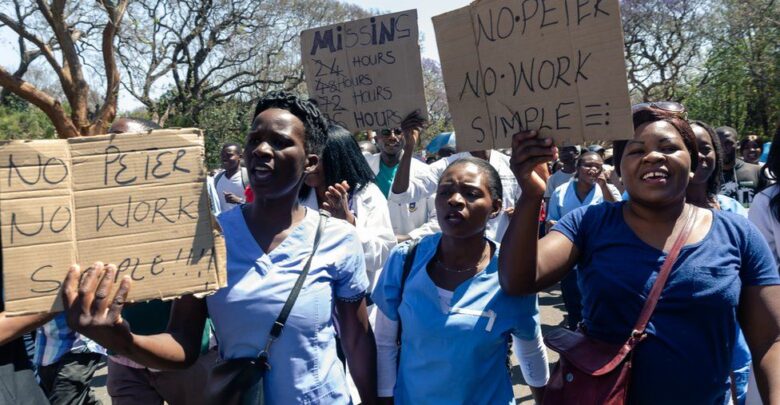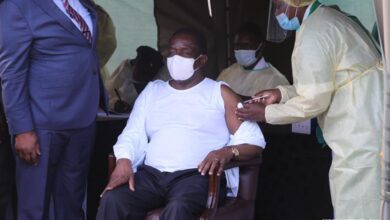Zimbabwe
Zimbabwe’s Healthcare Workers Go On Strike Over Wages, Inflation Crisis

Zimbabwe’s health workers went on a strike on Monday after rejecting the government’s 100% wage hike offer last week, demanding their payment be made in U.S. dollars as spiraling inflation has eroded the purchasing power of the local currency, reported Reuters.
Zimbabwe’s nurses, doctors, and other medical professionals announced the strike on Monday and did not turn up for work.
Doctors, nurses, and medical workers at Parirenyatwa Group of Hospitals, which is the country’s biggest referral center, marched to the Health Service Board offices within the hospital complex and held placards, and gathered outside residential hostels for trainee nurses.
Zimbabwe is currently reeling through an economic crisis characterized by hyperinflation, 90 percent unemployment, a rapidly devaluing local currency, and declining manufacturing output. The economic conditions prevailing in the country had rapidly deteriorated especially over the last three months.
Last week, the government said that it had increased workers’ salaries by 100 percent starting in July, and also promised to continue to review the workers’ salaries in line with the prevailing economic conditions.
But with the purchasing power of their salaries decimated by an inflation rate upwards of 132 percent, the striking public health workers and other civil servants are demanding that their salaries be paid in US dollars, which they see as a more stable currency.
On Monday, Dr. Tapiwanashe Kusotera, the leader of Health Apex, a body representing all unions in the healthcare sector, described the strike as a “good first day”, which was marked by strong support for the strike across the country.
“Our first goal has been achieved already,” Kusotera told Al Jazeera.
He said the government must cushion the workers from the vagaries of inflation, and address specific issues such as cost of living adjustment and working conditions. He added that the coalition union has been invited for a meeting by Zimbabwe’s Health Services Board and the ministry this week.





